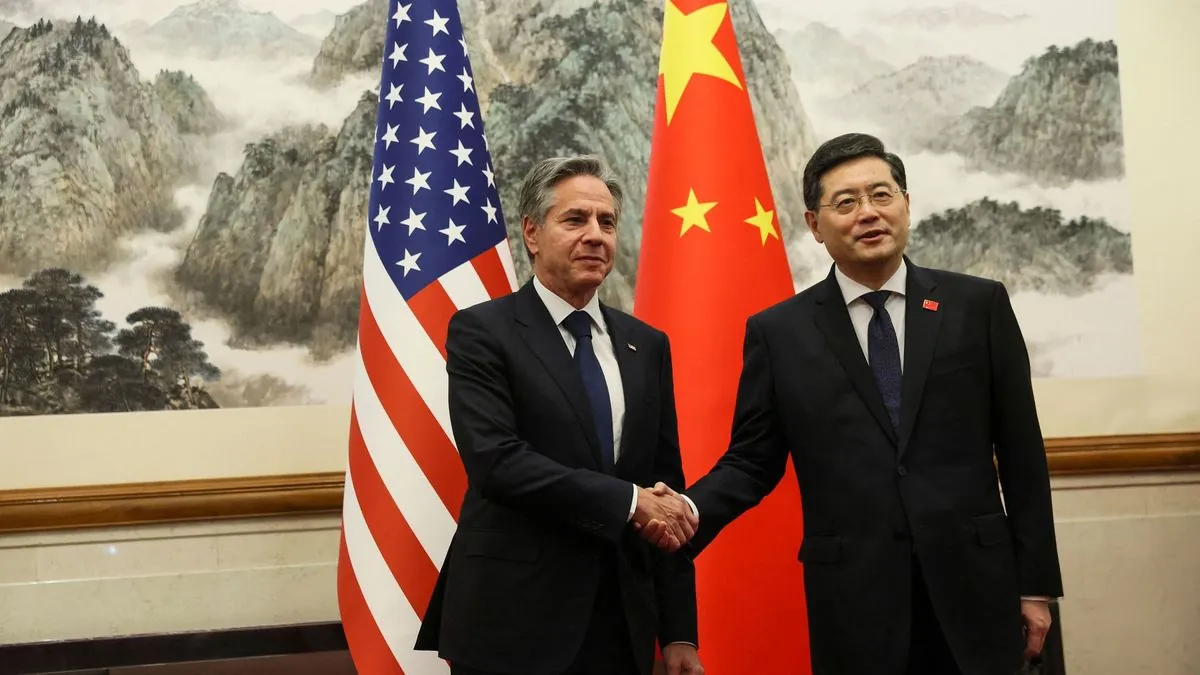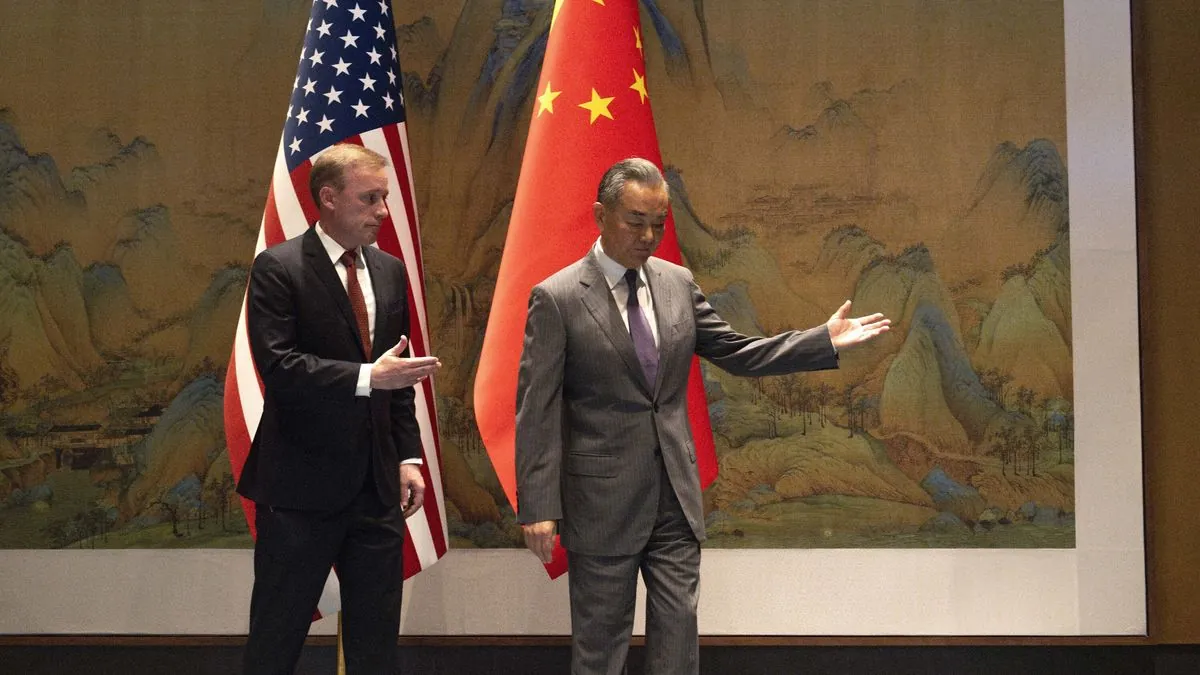U.S.-China Diplomatic Talks Conclude in Beijing Amid Global Tensions
High-level U.S. and Chinese officials wrap up three-day talks in Beijing, addressing key global issues and bilateral concerns. The meetings aim to ease tensions ahead of the upcoming U.S. election.

As of August 29, 2024, top officials from the United States and China are concluding a three-day series of diplomatic meetings in Beijing. These talks, held at a secluded resort on the outskirts of the Chinese capital, aim to address the complex relationship between the world's two largest economies.
Jake Sullivan, the U.S. National Security Advisor, and Wang Yi, China's top diplomat, led their respective delegations in discussions covering a wide range of global and bilateral issues. The agenda included:
- Perspectives on the Middle East and Ukraine conflicts
- Territorial disputes in the South China Sea and Taiwan
- Trade relations and economic concerns
- Potential future communication between military commands
- Prospects for a meeting between President Biden and President Xi Jinping
The talks come at a crucial time, with the U.S. presidential election scheduled for November 5, 2024. This diplomatic engagement reflects the Biden administration's strategy of direct dialogue with China to manage tensions and foster cooperation on critical global challenges.

Both sides expressed a desire for constructive dialogue. According to state broadcaster CCTV, Wang Yi emphasized the importance of mutual respect, stating, "The key to the smooth development of China-U.S. interaction lies in treating each other as equals." The White House described the discussions as "candid, substantive, and constructive."
Specific issues addressed during the talks included:
- U.S. concerns about Chinese production of fentanyl precursors
- Establishing safety standards for artificial intelligence
- Chinese objections to U.S. tariffs on manufactured goods
- Export controls targeting Chinese semiconductor manufacturers
These meetings occur against the backdrop of evolving global dynamics. The U.S. and China, as the top two military spenders and largest carbon emitters, play crucial roles in addressing international security and climate change challenges. Their relationship, formally established in 1979, has faced increasing strain in recent years due to trade disputes, technological competition, and geopolitical tensions.
As the talks conclude, observers note that the outcome of these discussions could significantly impact global affairs and the future of U.S.-China relations. With the U.S. presidential election approaching, the diplomatic approach towards China remains a topic of debate among political candidates and analysts.
"The key to the smooth development of China-U.S. interaction lies in treating each other as equals."
This high-level engagement underscores the complex nature of U.S.-China relations and the ongoing efforts to find common ground amidst divergent interests and perspectives.


































